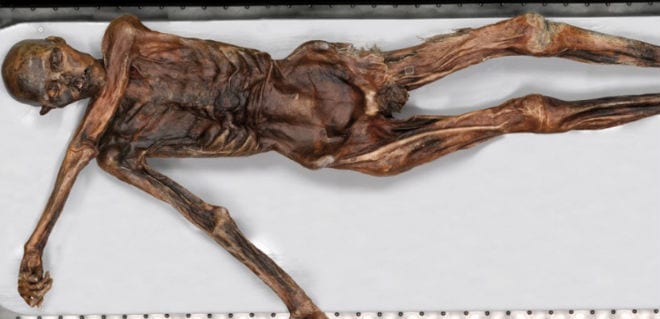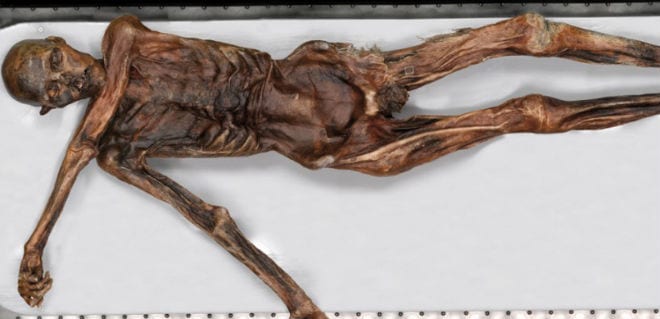
The Iceman suffered from the Lyme disease.

Otzi had Lyme disease!
The so-called "Iceman", nicknamed Otzi after the place where he was found in 1991 by German tourists in the Otztal Alps, was suffering from the disease. Lyme disease.
This was demonstrated by analyses that scientists from the Institute for Mummies and the Iceman, working together with the Institute for Human Genetics at the University of Tübingen, and the Institute of Human Genetics at Saarland University, have been able to verify after rigorous analyses and tests in which the entire genome sequence has been determined. Thus discovering that "Otzi" suffered from Lyme disease 5300 years ago.
The study confirms the results of an earlier study in which the entire mitochondrial genome was sequenced, thus determining the starting point of the famous iceman.
A genetic study provided further evidence, such as his blood type 0 and that he suffered from lactose intolerance as well as a risk predisposition to coronary heart disease.
A point that puzzled scientists since, as anthropologist Albert Zink together with bioinformatician Andreas Keller stated, Otzi was not overweight and was certainly no stranger to physical exercise, "... he was not overweight.Evidence that there was a genetic predisposition in Ã-tzi's life (to suffer from these diseases) is of great interest to us"said the doctors.
However, the fact that they have discovered the first case of Lyme disease in history suggests a symptomatic explanation for all the other associated diseases that these experts discovered after in-depth and rigorous analysis, since the Lyme disease bacterium causes many of the pathologies that these scientists have described thanks to the complete sequencing of the genome of the Iceman, Otzi, the first case of Lyme disease. Lyme documented history.

